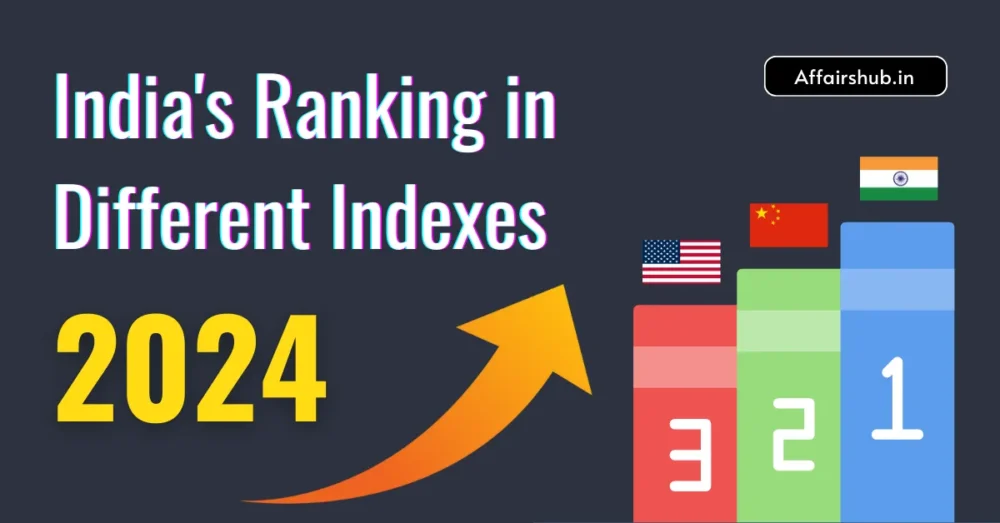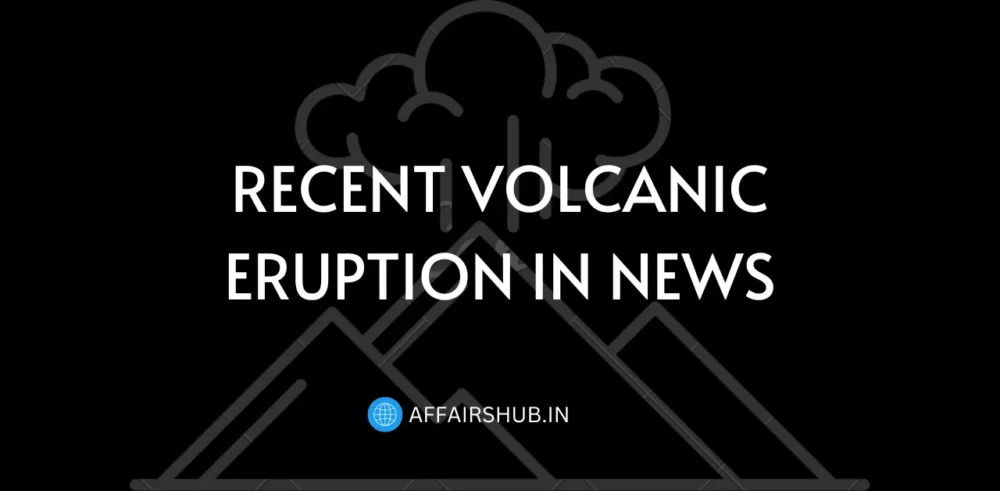WHO in News Latest Current Affairs 2025
Explore the latest current affairs on the World Health Organization (WHO). In this post, we will cover all the latest developments and announcements about diseases and health-related facts by WHO. These updates are important for upcoming competitive exams such as SSC, UPSC, Railway, NTPC, RRB, and all state-level exams.
January-Feb-March 2025
- Georgia has officially been certified as malaria-free by the World Health Organization (WHO).
- The World Health Organization (WHO), in collaboration with Colombia, organized the Second Global Conference on Air Pollution and Health. The theme of the conference was “Accelerating action for clean air, clean energy access and climate change mitigation.”
- In a global first, Uganda, in partnership with the World Health Organization (WHO) and other global partners, has launched the first-ever clinical trial for a vaccine targeting the Sudan species of the Ebola virus.
- The World Health Organization (WHO) has released the 2025 edition of the International Classification of Diseases, 11th Revision (ICD-11). It is a globally recognized tool used for standardizing the diagnosis, reporting, and monitoring of diseases, injuries, and causes of death.
December 2024
- WHO and partners announced 10 projects to receive US$ 2 million grants for enhancing pathogen genomic surveillance under the International Pathogen Surveillance Network (IPSN).
- WHO launched a “16 Days Campaign” (November 25–December 10) to end gender-based violence under the theme “UNITE! Invest to prevent violence against women and girls.”
- WHO’s World Malaria Report 2024 highlights that Nigeria accounts for the majority of malaria deaths globally (30.9%).
- Scientists at WHO endorsed GLP-1 receptor agonists, a new class of medicines to manage obesity by mimicking hormones that regulate appetite and blood sugar levels.
October -November 2024
- As per the recently released ‘Global Tuberculosis Report 2024,’ approximately 8.2 million people were newly diagnosed with Tuberculosis (TB) in 2023, the highest number recorded since WHO began global TB monitoring in 1995.
- The World Health Organization (WHO) has reaffirmed that ‘M-Pox’ will continue to be classified as a Public Health Emergency of International Concern (PHEIC) due to a sharp rise in cases and the virus’s expanding geographic spread.
- Global Strategic Preparedness, Readiness, and Response Plan: The World Health Organization (WHO) recently launched the SPRP to address dengue and other Aedes-borne arboviruses.
- Mpox In Vitro Diagnostic Listing: WHO has listed the first mpox in vitro diagnostic (IVD) under its Emergency Use Listing (EUL) procedure, aiming to improve global access to mpox testing.
- India Eliminates Trachoma: WHO declared that India has eliminated Trachoma as a public health issue, making it the third country in the South-East Asia Region to achieve this milestone.
- Chairperson of WHO South-East Asia Region RC77: Jagat Prakash Nadda was elected as the Chairperson for the 77th Session (RC77) of WHO South-East Asia Region.
- Health Labour Market Analysis (HLMA) Support Tool: WHO launched the HLMA support tool to assist African nations in evaluating health workforce education capacity, supply, and demand.
- Vaccine Regulatory System Compliance: The Central Drugs Standard Control Organization (CDSCO) in India meets WHO’s indicators for a functional vaccine regulatory system.
- WHO Funding Pledges: WHO secured $1 billion in pledges for its upcoming 2025-2028 budget period.
- 19th International Conference of Drug Regulatory Authorities (ICDRA): India hosted the ICDRA for the first time, organized by CDSCO in collaboration with WHO. The theme was “Smart Regulation: Delivering Quality Assured Medical Products for All.”
- Malaria-Free Country: WHO officially declared Egypt as malaria-free.
- India’s Pledge to WHO Core Programs: India has pledged over USD 300 million to support WHO’s core programs for the 2025-2028 period.
September 2024
Nepal’s first ‘healthy city’
- The municipality of Dhulikhel in Kavrepalanchok district, Nepal, has been declared as Nepal’s first ‘healthy city’ and the second healthiest city in Asia by the World Health Organization (WHO).
Road traffic deaths in India
- According to the report titled “WHO South-East Asia Regional (WHO SEARO) Status Report on Road Safety: Towards Safer and Sustainable Mobility,” India reported an increase in estimated road traffic deaths by 2% during the 2010-2021 period.
- Country with the highest gap: Bangladesh has the highest gap between reported and estimated road traffic deaths among WHO SEARO member states.
New global framework for pathogen investigation
- The World Health Organization (WHO) has introduced a ‘new global framework’ aimed at streamlining the investigation of origins of novel and re-emerging pathogens with the potential to cause epidemics or pandemics.
Bavarian Nordic’s MVA-BN vaccine prequalification
- The World Health Organization (WHO) has announced the Bavarian Nordic’s MVA-BN vaccine as the first vaccine against mpox to be added to its prequalification list.
First country to eliminate leprosy
- The World Health Organization (WHO) has officially recognized Jordan as the first country globally to eliminate leprosy.
July to August 2024
- World Health Organization (WHO) has launched the ‘Medical Devices Information System’ (MeDevIS), an innovative online platform serving as the first global open-access resource for information on medical devices.
- World Health Organization (WHO) published the fifth milestone report titled ‘Countdown to 2023’, covering progress towards global trans-fat elimination from 2018–2023.
- According to the ‘WHO and UNICEF estimates of national immunization coverage (WUENIC)’, Nigeria topped the list with 2.1 million unvaccinated children in 2023, while India had the second highest number of children who received no vaccines.
- World Health Organization (WHO) has announced a new project to speed up the development of vaccines for bird flu in poorer countries.
- The Ministry of Ayush and the World Health Organization (WHO) signed a Donor Agreement outlining the financial terms for implementing activities at the WHO Global Traditional Medicine Centre (GTMC) in Jamnagar, Gujarat.
- World Health Organization (WHO) collaborated with the International Olympic Committee (IOC) and the French government to make the Paris Olympics both healthy and safe.
- Sree Chitra Tirunal Institute for Medical Sciences and Technology (SCTIMST) signed an MoU with the World Health Organization (WHO) as part of the Covid Technology Access Pool (C-TAP), now known as the Health Technology Access Pool (H-TAP).
- World Health Organization (WHO) launched a six-month global strategic and response plan to stop the deadly outbreak of Mpox.
April to June 2024
- The World Health Organization (WHO) recently unveiled S.A.R.A.H. (Smart AI Resource Assistant for Health), its first digital health promoter prototype with enhanced empathetic response.
- As per the recently released Global Hepatitis Report 2024 by the World Health Organization (WHO), viral hepatitis caused 1.3 million deaths globally in 2022.
- The World Health Organization (WHO) recently prequalified a new oral cholera vaccine called Euvichol-S.
- The World Health Organization (WHO) recently introduced a standardized term, ‘infectious respiratory particles’ (IRPs), to describe pathogens transmitted through the air.
- The World Health Organization (WHO) launched the Patient Safety Rights Charter.
- Recently, the World Health Organization (WHO) released the second edition of its global sodium benchmarks, an updated list of reference values for sodium content to assess progress in reducing sodium consumption and preventing chronic conditions.
✅ Read Also: UNESCO in News Current Affairs: Explore the Latest UNESCO-related Updates
- Member states of the World Health Organization (WHO) were close to agreeing on a package of amendments to International Health Regulations (2005) to better prepare the world for future public health emergencies.
- The World Health Organization (WHO) unveiled a new operational strategy to accelerate progress against malaria and achieve the disease elimination targets outlined in the Global Technical Strategy for Malaria 2016-2030.
- The World Health Organization (WHO) granted certification to Belize, Jamaica, St. Vincent and the Grenadines for eliminating the mother-to-child transmission (EMTCT) of Human Immunodeficiency Virus (HIV) and Syphilis.
- The World Health Organization (WHO) published its first global guidelines to prevent the occurrence of bloodstream and other infections caused by the use of catheters placed in minor blood vessels during medical procedures.
- The World Health Organization (WHO) prequalified a new vaccine, TAK-003, to fight against Dengue.
- As per the recently released report “Action on salt and hypertension”, cardiovascular disease is responsible for 40% of deaths in Europe. This report was released by the World Health Organization (WHO).
- The World Health Organization (WHO) recently updated its Bacterial Priority Pathogens List (BPPL), identifying the top 15 families of antibiotic-resistant bacteria that pose significant threats to human health.
✅ Read Also: Sea Ports in News, Latest Current Affairs
- The National Institute of Mental Health and Neuro Sciences (NIMHANS), Bengaluru, was awarded the Nelson Mandela Award for Health Promotion for 2024 by the World Health Organization (WHO).
- As per the recently released report titled ‘Hooking the next generation’, an estimated 37 million children aged 13–15 years use tobacco. This report was released by the World Health Organization (WHO).
- The World Health Organization (WHO) launched a new Investment Round aiming to raise USD 7 billion over 4 years to support countries in tackling global challenges.
- The World Health Organization (WHO) designated the National Institute of Indian Medical Heritage as the WHO-Collaborating Centre (CC) for “Fundamental and Literary Research in Traditional Medicine”.
- As per the recently released ‘2023 Antibacterial agents in clinical and preclinical development: an overview and analysis’, 84% of antibacterial Research and Development (R&D) is concentrated in high-income countries. This report was released by the World Health Organization (WHO).
✅ Read Also: Recent Volcanic Eruption in News 2024
January to March 2024
- Terminologies defining diseases in Ayurveda, Unani, and Siddha systems of medicine have been included in the International Classification of Diseases (ICD 11), maintained by the World Health Organization (WHO).
- Cabo Verde has been certified malaria-free by the World Health Organization (WHO).
- The World Health Organization (WHO) has awarded its first-ever certificates validating progress in eliminating industrially produced trans fatty acids to 5 countries: Denmark, Lithuania, Poland, Saudi Arabia, and Thailand.
- The Healthy Indian Project (THIP) has been included as a member of the Vaccine Safety Net (VSN), an initiative of the World Health Organization (WHO).
- The National Institute of Mental Health and Neuro Sciences (NIMHANS), Bengaluru, has been awarded the Nelson Mandela Award for Health Promotion for 2024 by the World Health Organization (WHO).
- The World Health Organization (WHO) has launched the Global Initiative on Digital Health (GIDH).
- The Fair Share for Health and Care report has been released by the World Health Organization (WHO).
- The World Health Organization (WHO) has launched a global network of laboratories called CoViNet to identify and monitor potentially novel coronaviruses.
- Rare Disease Day is observed on the last day of February every year. In 2024, it falls on 29 February. The World Health Organization (WHO) defines a rare disease as a condition that affects one in 1,000 people or less. In India, the definition is one in 2,500. The theme is Share Your Colours.
More On International Affairs






